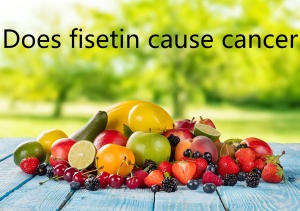Does fisetin cause cancer

There’s been a lot of interest in fisetin lately, especially in the world of anti-aging and brain health. But as with any supplement that gets popular fast, people start asking questions like — can fisetin cause cancer? It’s a fair concern, and something you definitely want to understand before adding anything new to your routine.
What is fisetin? Fisetin is a natural flavonoid found in strawberries, apples, grapes, and other fruits. It’s known for its antioxidant and anti-inflammatory effects. In lab studies, fisetin has shown promise in fighting oxidative stress and even helping to clear out old, “senescent” cells — the ones that stop working properly and build up with age. These cells are linked to aging and chronic disease, including cancer.
Interestingly, rather than causing cancer, most of the research on fisetin looks at how it might help prevent or fight it. In animal and cell studies, fisetin has been shown to slow down the growth of certain cancer cells — including those from prostate, breast, lung, and colon cancers. It does this by influencing pathways that control cell death (apoptosis), inflammation, and even angiogenesis, which is how tumors build new blood vessels to grow.
No solid evidence shows that fisetin causes cancer in humans. In fact, it’s being looked at for its potential as a supportive compound in cancer therapy. That doesn’t mean you should take huge amounts of it without thinking. The research is still early, especially when it comes to high doses and long-term use in humans.
One thing to keep in mind: most of the studies showing anti-cancer effects use much higher doses than you’d get from food. That’s why some people turn to fisetin supplements. If you go that route, it’s important to stick with reputable brands and be aware that “more” doesn’t always mean “better.”
If you’re already dealing with a medical condition or taking other medications, talk to your doctor before adding fisetin or any supplement. While it's natural, it still affects how your body works on a cellular level, and that can matter if you’re on treatments or managing health conditions.
For now, the science points more toward fisetin being helpful in the cancer conversation — not harmful. But like any compound with potential, it deserves more human trials so we can really understand how it works in different people over time.
